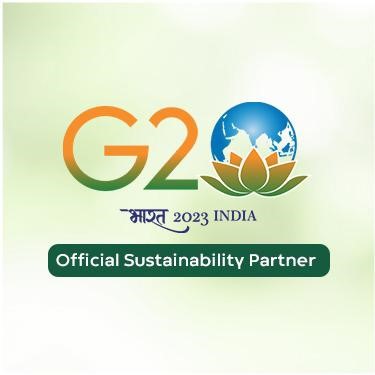India’s plastic pollution crisis is urgent, but there’s hope, innovative companies are charting a practical path forward. While legislation sets the framework, real change is shaped by the institutions, businesses, and communities working on the front lines. Here’s how our compostable solutions have impacted lives, landscapes, and mindsets across India.
Tirumala Tirupati Temple: Leading the Way in Sustainable Pilgrimage

One of India’s largest pilgrimage sites, Tirumala Tirupati Devasthanams, (popularly known as Tirupati) was battling plastic waste generated by millions of visitors each year. In partnership with Ecolastic, the temple replaced disposable plastics like carry bags and food containers—with IS/ISO17088-certified compostable products.
- Lessons: Religious institutions can play a powerful role in normalizing sustainable choices for the masses.
- Impact: Reduced landfill-bound waste, improved cleanliness in sacred precincts, and set an example for eco-conscious religious tourism.
Hospitality & Cloud Kitchens: Serving Green to Millions
Ecolastic’s biodegradable cutlery and packaging have been adopted by restaurants and cloud kitchens across metros like Bengaluru, Delhi, and Hyderabad—helping those delivering food via swiggy and zomato and via restaurant takeouts.
- Impact: Reduction in plastic litter from food delivery, compliance with urban waste laws, and positive feedback from eco-aware customers. Plastic is toxic for food, Ecolastic products are made from corn starch and 100% food safe.
- Lessons: Brand value soars as businesses embrace compostable solutions, attracting the growing “green consumer” segment.
Farmers & Growers: Compostable Mulch Films for Indian Agriculture
Farmers using Ecolastic’s compostable mulch films report higher yields, reduced field waste, and better soil health at harvest time. Unlike traditional plastic mulch, Ecolastic’s films break down alongside crop residues, eliminating seasonal landfills.
- Impact: Lower cleanup costs, improved soil structure, and a boost to circular, waste-free farming models.
- Lessons: Bioplastics can add both environmental and economic value to Indian agriculture.
Voices From the Ground
- “Our daily waste pickups are lighter, and students ask about composting at home!” — Principal, Delhi school.
- “Switching to Ecolastic at our restaurant was seamless—our customers appreciate the effort.” — Café owner, Hyderabad.
- “Faith and sustainability can work hand in hand. We’ve inspired other temples to go green.” — Tirumala Tirupati management.
Conclusion
From the sacred halls of temples to fields and city kitchens, Ecolastic’s compostable products are not just reducing plastic—they’re inspiring real change. These stories underline a crucial point: scalable sustainability is possible when innovation meets local needs, regulations, and the will to do better.
If your organization wants to make a similar impact, choosing certified compostable products like Ecolastic is a proven first step. The transformation can start with you.





